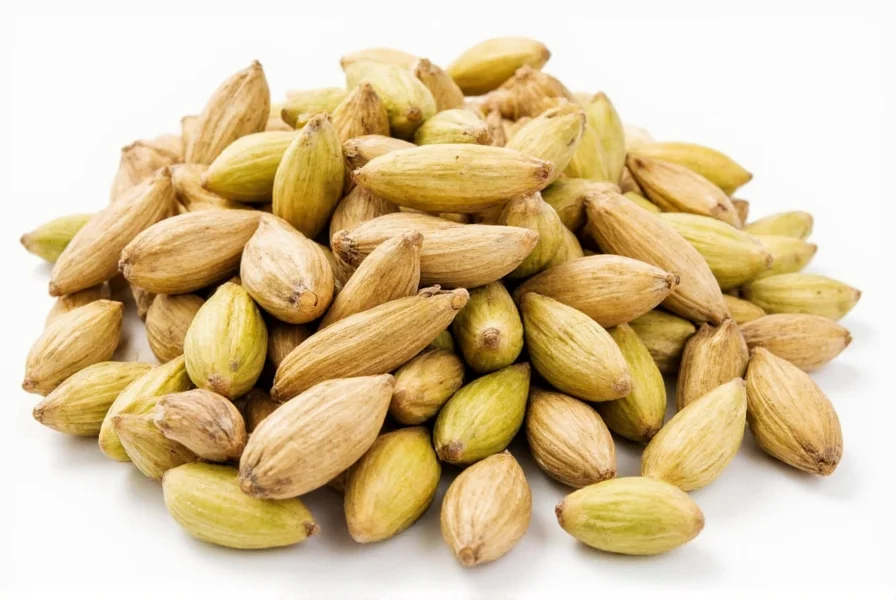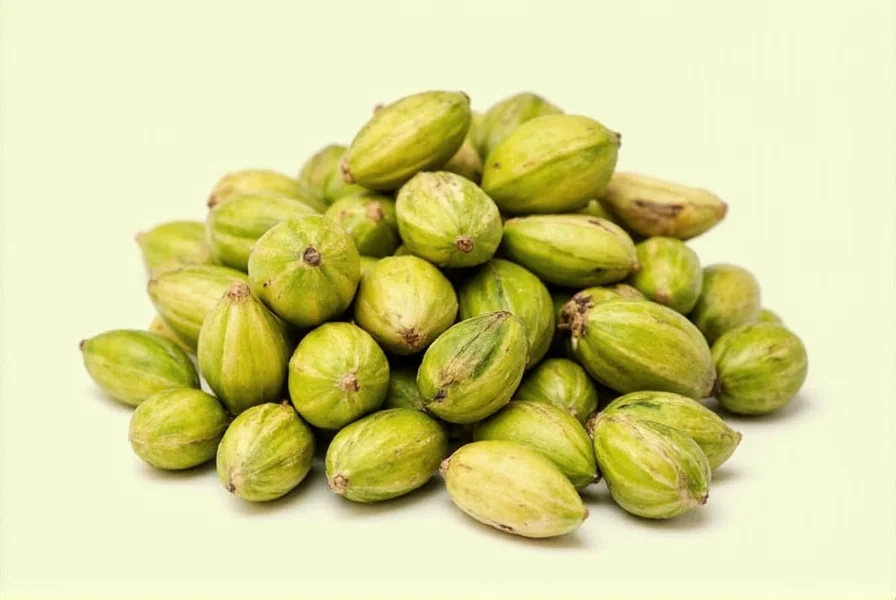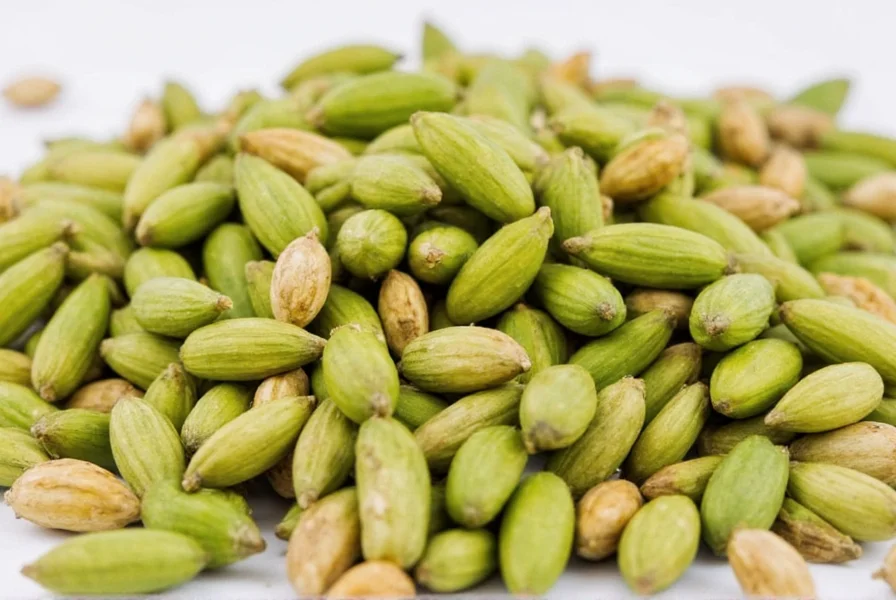Mastering the correct cardamom pronunciation opens doors to confident conversations in culinary, cultural, and linguistic contexts. This aromatic spice deserves proper verbal recognition alongside its distinctive flavor profile. Whether you're discussing Scandinavian baking traditions or Indian chai recipes, saying cardamom correctly shows respect for its global heritage.
Breaking Down Cardamom Pronunciation
The word "cardamom" contains three syllables with stress on the initial syllable. Let's examine each component:
| Syllable | Phonetic Spelling | Sound Description |
|---|---|---|
| Car | KAR | Like "car" with a firm 'r' sound |
| da | duh | Soft unstressed vowel, like "duh" in casual speech |
| mom | muhm | Muted 'm' ending without full lip closure |
When saying cardamom pronunciation correctly, many non-native English speakers struggle with the unstressed second syllable. The "da" shouldn't be emphasized as "DAY" or "DAH"—it should flow quickly into the final syllable. This precise cardamom pronunciation guide ensures you'll sound knowledgeable whether ordering at a specialty spice shop or discussing recipes with professional chefs.
Common Mispronunciations to Avoid
Several incorrect pronunciations frequently appear in everyday conversation:
- car-DAM-um - Incorrect emphasis on the second syllable
- card-a-mom - Adding an extra syllable that doesn't exist
- CAR-da-mom - Overemphasizing the final syllable
- kar-DAH-mum - Using Spanish-influenced vowel sounds
These mispronunciations often stem from misreading the word's spelling. The double "m" at the end indicates the final syllable should be muted, not emphasized. Understanding proper cardamom pronunciation helps avoid these common errors that might confuse spice merchants or culinary professionals.

Linguistic Origins Influencing Pronunciation
Cardamom entered English from Latin cardamomum, which derived from Greek kardamomon, ultimately tracing back to Sanskrit ela. This linguistic journey explains why pronunciation varies slightly across regions:
- American English: KAR-duh-muhm (most common)
- British English: KAR-duh-muhm or KAR-duh-muhm (softer 'r')
- Scandinavian: KAR-duh-moom (longer final vowel)
- Indian English: KAR-duh-muhm with retroflex 'd' sound
While regional variations exist, the standard English pronunciation maintains the KAR-duh-muhm pattern. When discussing cardamom pronunciation in culinary contexts, this standard form ensures clear communication regardless of regional dialects. The correct cardamom pronunciation remains consistent across most English-speaking professional kitchens and spice markets worldwide.
Practical Usage Examples
Hearing the word in context reinforces proper cardamom pronunciation. Consider these examples:
"For the Scandinavian cardamom buns, ensure you use freshly ground cardamom pods rather than pre-ground spice."
"The authentic Indian chai recipe calls for six cardamom pods, lightly crushed to release their aromatic oils."
Notice how the word fits naturally into culinary discussions when pronounced correctly. Practicing cardamom pronunciation in full sentences helps internalize the rhythm and stress pattern better than isolated repetition. This practical cardamom pronunciation guide serves both novice cooks and experienced chefs seeking linguistic precision.

Related Spice Pronunciation Tips
Mastering cardamom pronunciation often leads to questions about similar spice names. Here's how to correctly pronounce related terms:
- Cumin: KUM-in (not CUE-min)
- Coriander: kuh-RYE-uhn-der (seed) vs. kuh-RYAN-der (leaf)
- Turmeric: TUR-muh-rik (not too-MEHR-ik)
- Paprika: puh-PREE-kuh (Hungarian) vs. puh-PRI-kuh (Spanish)
Understanding these related pronunciations creates a foundation for confident communication about global spices. The correct cardamom pronunciation fits within this broader context of culinary linguistics, helping you navigate international recipes and spice market conversations with ease.
Improving Your Cardamom Pronunciation
Developing accurate cardamom pronunciation requires practice. Try these techniques:
- Repeat slowly: KAR (pause) duh (pause) muhm
- Record yourself and compare with native speakers
- Practice in full sentences about cooking or baking
- Use the word daily until it becomes natural
- Ask fluent English speakers for feedback
Within a week of consistent practice, proper cardamom pronunciation will become automatic. This investment pays dividends when discussing recipes, ordering at ethnic restaurants, or shopping at international markets. The precise cardamom pronunciation guide presented here eliminates uncertainty about this commonly mispronounced spice name.
Frequently Asked Questions
How do you pronounce cardamom in British English?
In British English, cardamom is pronounced KAR-duh-muhm, with a softer 'r' sound than American English. Some British speakers may use KAR-duh-muhm, dropping the 'r' sound completely, but the stress remains on the first syllable.
Is it correct to say 'cardamon' instead of 'cardamom'?
While 'cardamon' appears as an alternative spelling, the standard English spelling is 'cardamom' with double 'm' at the end. Both refer to the same spice, but 'cardamom' is the preferred spelling in most English-speaking countries and dictionaries.
Why do people often mispronounce cardamom?
People frequently mispronounce cardamom because its spelling suggests more syllables than it actually has. The double 'm' at the end leads some to emphasize the final syllable as 'mom' rather than the correct muted 'muhm' sound. Additionally, unfamiliarity with this spice outside culinary circles contributes to pronunciation errors.
Does cardamom pronunciation differ between green and black cardamom?
No, the pronunciation remains KAR-duh-muhm regardless of whether you're referring to green cardamom (Elettaria cardamomum) or black cardamom (Amomum subulatum). The different varieties share the same pronunciation despite their distinct flavor profiles and culinary uses.
How can I remember the correct cardamom pronunciation?
Associate cardamom pronunciation with the phrase 'CAR got the MUM' - emphasizing the first syllable like 'car' and ending with a soft 'muhm' sound. This memory trick helps maintain proper stress pattern and prevents common mispronunciations that emphasize later syllables.











 浙公网安备
33010002000092号
浙公网安备
33010002000092号 浙B2-20120091-4
浙B2-20120091-4